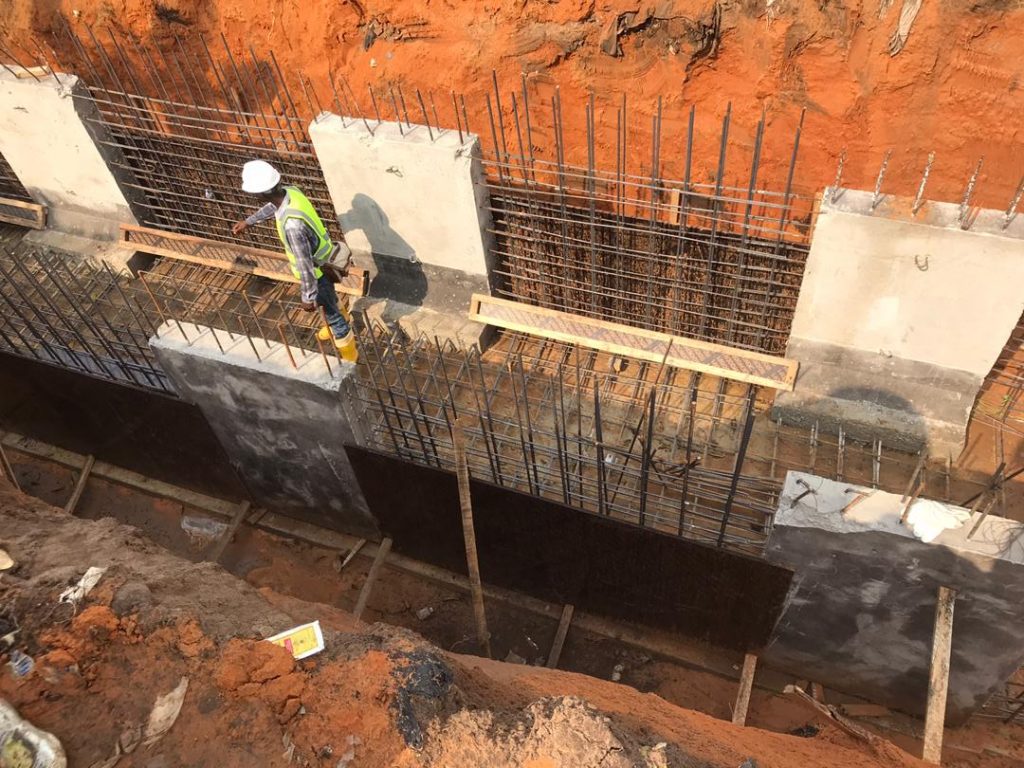
Challenges of Storm Water Management in Urban Areas of Nigeria: A Critical Analysis
By John Cee Onwualu (FNSE, FNICE, FNIWE, P.E., R.ENG)

Abstract
Rapid urbanization in Nigeria, particularly in its major cities, has led to a significant increase in the volume and intensity of stormwater runoff, posing a growing threat to public safety, infrastructure, and the environment. This paper critically analyzes the various challenges associated with stormwater management in urban areas of Nigeria. It explores the interconnected nature of these challenges, encompassing inadequate infrastructure, rapid population growth, poor urban planning, and a lack of financial and institutional capacity. The paper also discusses the implications of climate change, which is exacerbating existing challenges and demanding innovative solutions. By examining the root causes and proposing potential mitigation strategies, this paper aims to contribute to the development of effective and sustainable stormwater management practices in Nigerian cities.
Keywords: Stormwater management, urban areas, Nigeria, infrastructure, urbanization, climate change, sustainable development.

Introduction
Urbanization in Nigeria is characterized by rapid population growth, inadequate infrastructure, and a lack of comprehensive urban planning. These factors, coupled with the increasing frequency and intensity of rainfall events due to climate change, have resulted in a critical challenge: effective stormwater management.
This paper aims to provide a comprehensive analysis of the challenges faced by urban areas in Nigeria, highlighting the interconnected nature of these issues and proposing potential solutions.

Challenges
1. Inadequate Infrastructure
Limited Drainage Systems: Existing drainage systems in many Nigerian cities are often outdated, insufficiently sized, and poorly maintained. This results in flooding during heavy rainfall events, leading to property damage, traffic disruptions, and public health risks.
Lack of Storm Water Retention and Treatment Facilities: The absence of adequate storm water retention and treatment facilities exacerbates the problem of flooding. Untreated stormwater runoff pollutes water bodies, impacting aquatic life and public health.
Poorly Designed Urban Infrastructure: Roads, buildings, and other infrastructure often lack proper drainage features, leading to surface runoff that exacerbates flooding and erosion.
2. Rapid Population Growth and Urban Expansion
Increased Impervious Surfaces: Rapid urbanization leads to the conversion of natural surfaces into impervious surfaces such as roads, buildings, and parking lots. This reduces infiltration, increasing the volume and velocity of stormwater runoff.
Informal Settlements: The growth of informal settlements with limited infrastructure further exacerbates the problem. These areas are particularly vulnerable to flooding due to inadequate drainage and lack of access to sanitation facilities.
3. Poor Urban Planning and Development
Lack of Comprehensive Master Plans: Many cities in Nigeria lack comprehensive urban planning frameworks that incorporate sustainable stormwater management practices.
Weak Enforcement of Regulations: Existing regulations regarding stormwater management are often poorly enforced, leading to the construction of poorly designed buildings and infrastructure.
Insufficient Public Awareness: A lack of public awareness about the importance of stormwater management and responsible water usage contributes to the problem.
4. Climate Change and its Implications
Increased Rainfall Intensity and Frequency: Climate change is leading to more frequent and intense rainfall events, further exacerbating existing drainage problems and increasing the risk of flooding.
Sea Level Rise: In coastal cities, sea level rise increases the risk of storm surges and flooding, exacerbating the challenges of stormwater management.
5. Financial and Institutional Capacity
Limited Funding: The lack of adequate funding for construction, maintenance, and implementation of sustainable stormwater management solutions is a major constraint.
Weak Institutional Capacity: Limited technical expertise and coordination among various government agencies responsible for stormwater management hinder the development of effective solutions.

Mitigation Strategies
Investment in Infrastructure
Investing in the expansion and improvement of drainage systems, including the construction of retention ponds and infiltration basins, is crucial.
Sustainable Urban Planning
Promoting green infrastructure, including green roofs, permeable pavements, and bioswales, can reduce runoff, improve water quality, and mitigate flooding.
Public Education and Awareness Campaigns
Raising public awareness about the importance of stormwater management and responsible water usage is vital.
Climate Change Adaptation
Integrating climate change adaptation measures into urban planning and infrastructure development is crucial for managing future challenges.
Strengthening Institutional Capacity
Building capacity through training programs, knowledge sharing, and collaborative partnerships can improve the effectiveness of stormwater management practices.
Public-Private Partnerships
Encouraging public-private partnerships can leverage private sector expertise and resources to address the financial and technical challenges of stormwater management.

Conclusion
The challenges of stormwater management in urban areas of Nigeria are multifaceted and interconnected. Addressing these challenges requires a comprehensive approach that combines infrastructure development, sustainable urban planning, public awareness, climate change adaptation, and financial investments.
By adopting innovative solutions and fostering collaboration among stakeholders, Nigeria can overcome these challenges and create more resilient and sustainable urban environments.
Recommendations
- Develop comprehensive urban planning frameworks that integrate sustainable stormwater management practices.
- Invest in the construction, maintenance, and expansion of drainage systems and storm water retention facilities.
- Promote green infrastructure and sustainable urban design principles.
- Enhance public awareness and education about responsible water usage and stormwater management.
- Strengthen institutional capacity and encourage collaboration among government agencies.
- Explore public-private partnerships to leverage private sector expertise and resources.
Further Research
- Investigate the impact of climate change on rainfall patterns and their implications for stormwater management.
- Develop cost-effective and sustainable solutions for stormwater management in informal settlements.
- Evaluate the effectiveness of different stormwater management strategies in Nigerian cities.
By addressing the challenges and implementing appropriate mitigation strategies, Nigeria can ensure the safety, health, and well-being of its urban population, while also mitigating the environmental impacts of stormwater runoff.
References
https://www.americanjournal.org/index.php/ajtas/article/view/12
https://www.americanjournal.org/index.php/ajtas/article/download/12/9/9
http://eprints.abuad.edu.ng/680/1/WATER-AND-DEVELOPMENT-CHALLENGES-IN-NIGERIA.pdf
https://www.ocerints.org/darch21_e-publication/papers/17Babajide%20Sunday%20Aseyan.pdf
https://iwaponline.com/wp/article/25/11/1094/98439/Water-infrastructure-sustainability-in-Nigeria-a